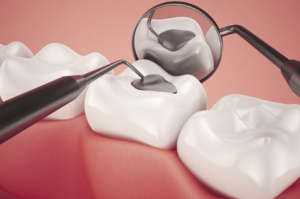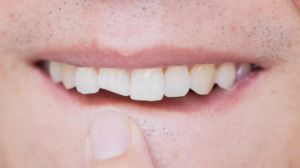
Dental restoration is a common procedure, yet many people find themselves questioning its necessity. This article will explore the reasons why dental restoration may be crucial for your oral health, addressing common concerns and misconceptions in a friendly manner.
Understanding Dental Restoration
Dental restoration encompasses various procedures aimed at restoring the functionality and aesthetics of teeth. From fillings to crowns, these solutions are designed to address issues stemming from decay, damage, or wear. But do you really need them? The answer often lies in understanding the impact of dental health on your overall well-being.
It’s important to recognize that dental restoration isn’t merely cosmetic. Yes, it helps improve the appearance of your teeth, but it also serves a critical function in maintaining proper oral health. By addressing dental issues early on, you can avoid more complex problems down the line.
Every tooth plays a role in your mouth’s function. When even one tooth is compromised, it can lead to issues with chewing, speaking, and even your jaw alignment. Therefore, understanding dental restoration can be the first step towards a healthier smile.
Common Reasons for Dental Restoration
One of the primary reasons people seek dental restoration is tooth decay. This common problem affects a significant portion of the population and can lead to severe pain and complications if left untreated. Dental restorations such as fillings can effectively remove decay and restore tooth structure.
Another reason for dental restoration is trauma. Whether due to an accident or sports, damaged teeth require immediate attention. Restoration procedures can repair cracks, chips, or even missing teeth, helping you regain both function and confidence.
Additionally, wear and tear from grinding or acidic foods can erode your teeth over time. In such cases, dental restoration not only rejuvenates your smile but also instills preventive measures for the future. Investing in your dental health today pays off in the long run.
Lastly, aesthetic concerns can also prompt individuals to consider dental restoration. Discolored, misaligned, or irregularly shaped teeth affect one’s self-esteem. Restorative procedures can enhance the appearance of your teeth, making you feel more confident in your smile.
How Dental Restoration Can Improve Oral Health
Improving oral health is one of the most significant benefits of dental restoration. By repairing damaged or decayed teeth, you not only restore their functionality but also reduce the risk of further complications. Healthy teeth are essential for proper chewing and digestion.
Moreover, dental restoration can help prevent gum disease. When decay and damage go untreated, they can lead to plaque buildup and infections that impact not just your teeth but also your gums and overall health. Restorative measures work to create a clean, healthy environment in your mouth.
Properly restored teeth also contribute to overall mouth symmetry and health. Misaligned or damaged teeth can lead to unnecessary strain on the jaw joint, resulting in discomfort and even conditions like TMJ. Correcting these issues through restoration can offer significant relief.
Additionally, dental restorations help maintain the natural alignment of your teeth. When a tooth is missing or damaged, surrounding teeth can shift, leading to misalignment. Restorative procedures keep your dental structure intact, promoting long-term oral health.
What to Expect During the Restoration Process
Understanding the dental restoration process can alleviate anxiety surrounding treatment. It often begins with a thorough examination, where your dentist will assess the condition of your teeth and discuss the best restorative options for you. Communication is key throughout this process.
Once a plan is in place, you can expect the procedure to be straightforward. For fillings and crowns, patients typically receive local anesthesia to ensure comfort. The restoration is then completed in one or more visits, depending on the complexity of the treatment.
Post-procedure, some minor discomfort is expected, but most individuals find that the benefits far outweigh any temporary discomfort. Your dentist will provide aftercare instructions to assist in your recovery and maintain the success of the restoration.
Remember, each person’s experience may be different, and understanding what to expect can help you feel more at ease. Your dental health team is there to support you every step of the way.
Evaluating the Need for Dental Restoration
Determining whether you need dental restoration often starts with self-assessment. Are you experiencing pain or discomfort in your teeth? Have you noticed any visible damage or changes in color? These signs are often indicative of underlying issues that warrant immediate attention.
Regular dental check-ups are vital for identifying the need for restoration. Your dentist will perform examinations and X-rays to catch problems early, ensuring that minor issues don’t escalate into major restorations later on.
Moreover, understanding your dental history plays a significant role. If you’ve previously had cavities or trauma, you may be more prone to future dental problems. Staying proactive in your dental care can help you maintain a healthy smile.
Ultimately, whether dental restoration is necessary can often depend on your lifestyle and habits. Factors such as diet, oral hygiene, and even genetics play a part in your dental health. Seeking guidance from your dentist is the best way to evaluate your specific needs.
Final Thoughts on Dental Restoration
In conclusion, dental restoration plays a vital role in maintaining both oral health and overall well-being. By addressing dental issues promptly, individuals can prevent further complications and ensure a brighter, healthier smile.


